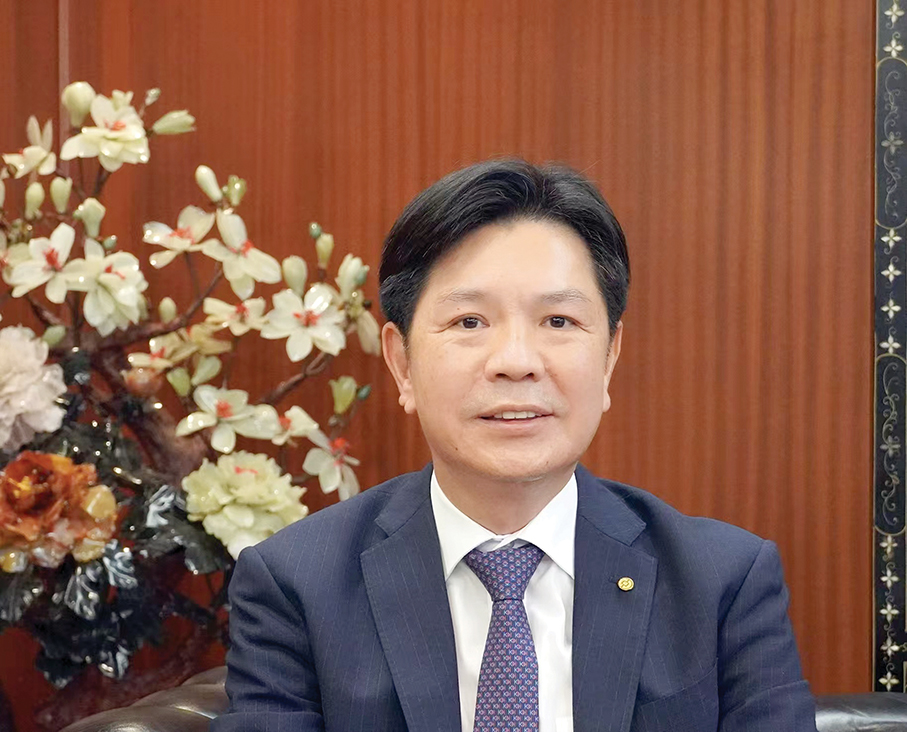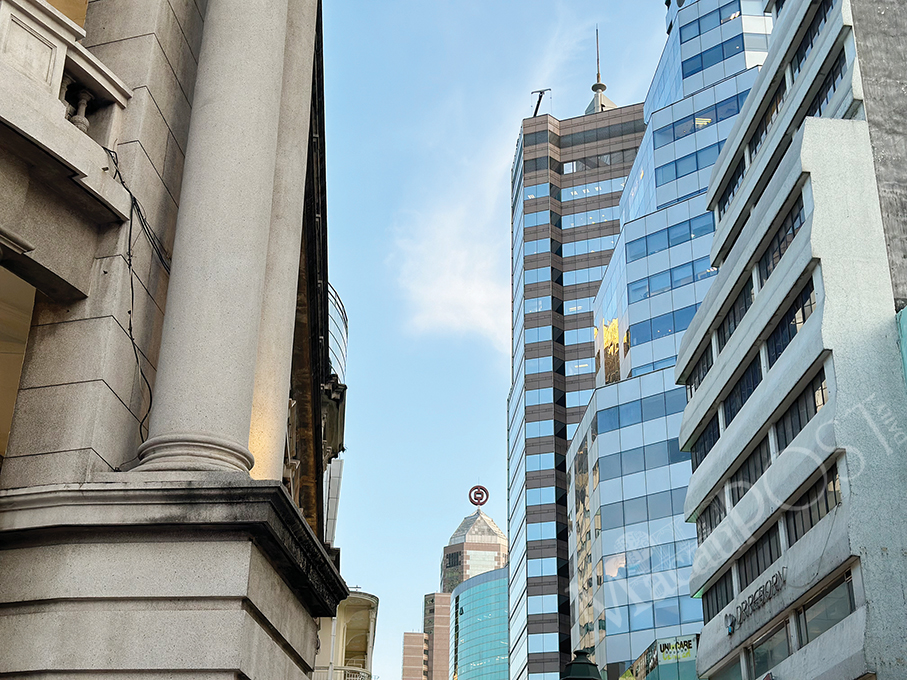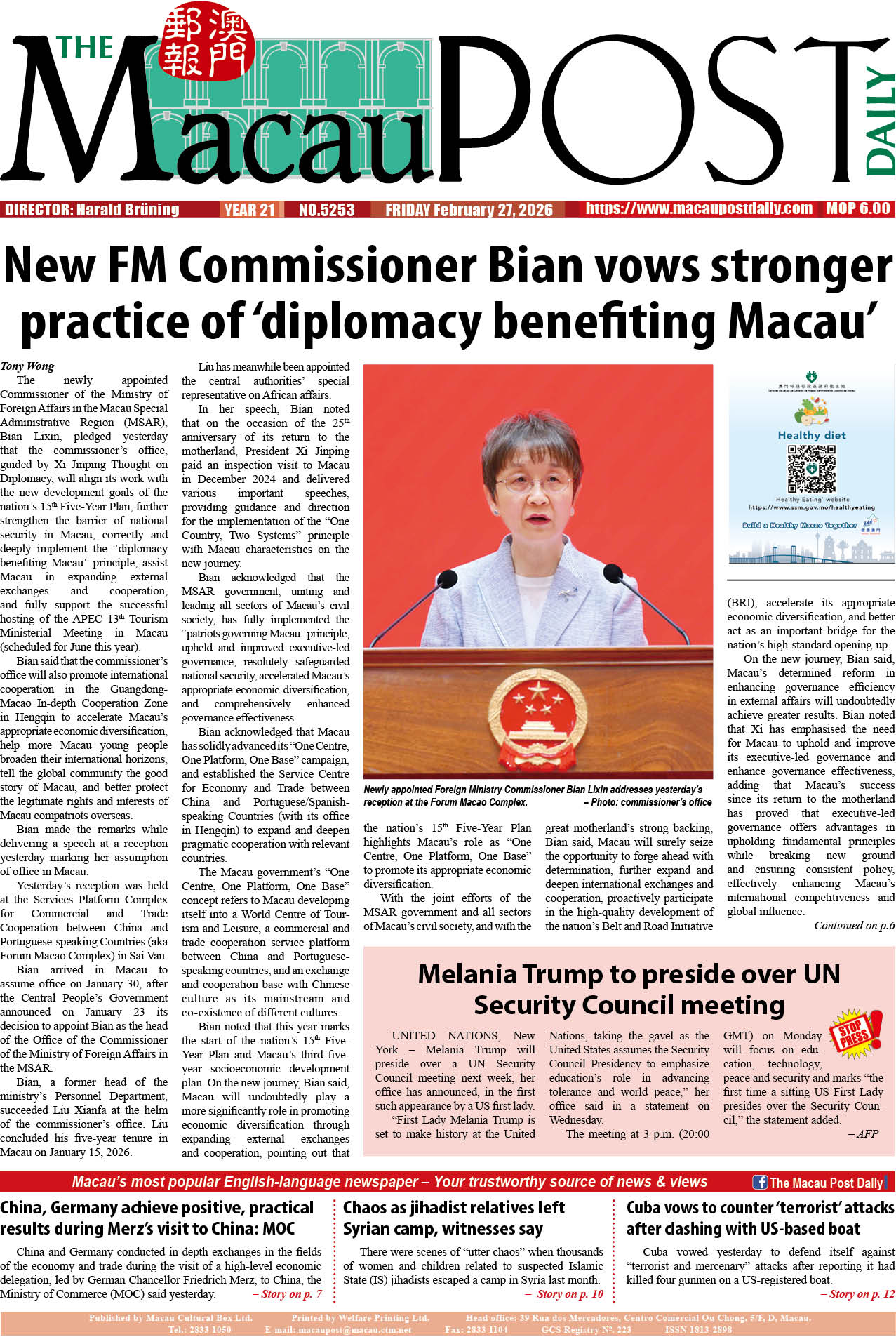Interview by Yuki Lei
The proportion of non-performing loans (NPLs) of banks to their total loans rose to 5.1 percent in August, a month-on-month increase of 0.47 percentage point, responding to which Macau Association of Banks (ABM) Chairman Ip Sio Kai said: “The uneven recovery of the local economy, coupled with the high US interest rates, has led to an increase in the operating costs for small- and medium-sized enterprises (SMEs), and the local business environment is considerably less favourable than in the past, which has naturally given rise to a number of non-performing loans”.
According to the Monetary Authority of Macau (AMCM), in terms of non-performing loans, the banking system’s NPLs stood at 54.12 billion patacas in August, rising to 5.1 per cent overall from the previous month. Of these, local residents accounted for 38 percent of the total, while non-local residents accounted for 62 percent, and half of the latter were derived from real estate development loans involving the mainland property market. Recently, in reply to a written interpellation to lawmaker Wong Kit Cheng, AMCM President Benjamin Chan Sau San underlined in a statement that “the overall risk is manageable”.
Speaking to the Post yesterday on the phone, Ip noted that Macau’s loan portfolio is divided into local and non-local, with non-local non-performing loans accounting for a larger share of about two-thirds, mainly due to the recent conditions of the mainland’s real estate market and the high economic instability worldwide, pointing out that the impact of local loans and the local economy on NPLs was small: “Indeed, local NPLs stand at a reasonable level”.
When asked whether there would still be an upward trend in the ratio of non-performing loans in the long term, Ip replied that, given that the global economic recovery was still underway, there was still an upward trend this year, but he stressed that it would not reach its market top: “I think the current [increase in the NPL ratio] shows the quality of the assets to a large extent. As Hong Kong continues to write off its non-performing loans and has even launched some new businesses to reduce its non-performing loans, this may indicate that the NPL ratio may remain at the present level for some time, and may even rise a little bit, but with the improvement in the operation of the banks, and even the emergence of a cycle of interest rate reductions, the banks should be slowly moving towards a situation where they will be able to achieve success amidst difficulties”.
According to Ip, NPLs are loans that are past due or expected to be past due, but are not equivalent to bad debts. They are a risk management measure of the banks, and are subject to the operational practices and requirements of the audit.
Whether or not the banking sector is operating in a sound manner depends not only on NPLs, but also on a series of indicators, including operating income, profitability and capital adequacy ratio, as well as deposits by residents, Ip said, underlining that “Macau’s banking sector is healthy”.
Citing the rise in interest rates for Macau deposits as an example, Ip pointed out that the economic capacity of residents and non-residents alike has not been diminished. According to the Monetary Authority of Macau, local residents’ deposits increased by 0.6 percent month-on-month to 747.7 billion patacas in August, while public sector deposits with the banking system increased by 2.3 percent to 198 billion patacas.
He also said that the capital adequacy ratio of the local banking sector as of the end of August remained at a “good level” of 14.21 percent, which was well above the core supervisory target of 8.0 percent or 8.12 percent, adding that with the performance of Macau’s gearing ratio* which, he underlined, is well above international standards, even though the NPL rate, in terms of these figures, is higher than before, it is “still in line with a reasonable level”.
When asked whether the NPLs would affect foreign investors’ confidence in Macau, Ip said that with the advantages created by government policies’ “dividends” and the special administrative region’s attractively low tax rates, he believed that the rise in NPLs would not have a significant impact on investors and Macau’s business environment, “mainly due to the interest rate factor”.
* The gearing ratio is a financial metric used to assess a company’s financial leverage and risk.

Undated file photo of Macau Association of Banks (ABM) Chairman Ip Sio Kai. Photo provided by Ip yesterday.

This photo taken yesterday shows several banks in the city centre. – Photo: Yuki Lei








